“Whatever a man prefers to God, that he makes a god to himself.”
Today, September 16, we celebrate the feast day of Saint Cyprian (died 258), Bishop of Carthage, and Martyr for the Faith. Saint Cyprian is remembered for his importance in the development of Christian thought and practice, especially in northern Africa. His sermons and writings, extant today, continue to inspire us. His principal works, which are respected and valued as those of a Church Father, included: On the Unity of the Church; On Apostates; a collection of Letters; The Lord's Prayer; On the Value of Patience. Saint Jerome said of him: "It is superfluous to speak of his greatness, for his works are more luminous than the sun."
Thascius Caecilius Cyprianus was born in Carthage, an African of noble birth, and the son of a Roman senator. While little is known of his life prior to the year 246, history tells us that he taught rhetoric, and was well-respected. In 246, however, Cyprian discovered the truth of Christianity through a friend—a priest who had converted late in life—and himself was converted and subsequently consecrated and ordained a priest. He immediately gave up all his possessions to those in need, and publicly made a vow of chastity to the astonishment of those who had known him. Only two years later, following a time of great preaching and consolidating of the faith in Carthage, Saint Cyprian found himself recognized as Bishop of the city
Cyprian led his city with vigor and zeal. He was an energetic shepherd of souls and a prolific writer, seeming never to tire, and fighting for the salvation and conversion of all he encountered. Similarly, Saint Cyprian recognized his own sinfulness and weakness, working to stamp out his pride over his accomplishments, and his love of the pleasures of his former life of frivolity. He defended the unity of the Church against schismatic movements in Africa and Italy, and greatly influenced the shaping of Church discipline relative to reinstating Christians who had apostatized.
When the persecution of Christians under the direction of Emperor Decius began, Saint Cyprian was the object of a search by the pagans wanting to disorganize the flock. He fled the city of Carthage, securing a hidden retreat, and from there continued to minister to the needs of his flock via epistles and the Sacraments. He assured the Christian burial of the martyrs suffering under Decius, and arranged for the needs of the poor and those stripped of their possessions during the persecution. When plague struck, Cyprian came out of hiding to minister to the sick and dying. He encouraged Christians everywhere to help the sick—not only their fellow Christians, but those who persecuted them as well. His fellow priests and bishops encouraged him to return to his place of secrecy, for fear he would be captured.
Saint Cyprian maintained a rigorous discipline of the mind and body, fasting, prayer, and penance. He expected the same from others, especially those who had apostatized to avoid persecution. Cyprian maintained a hard line, backed by Rome, greatly developing the Sacrament of Penance as a result. With the succession of emperor Valerian to the Roman throne, Saint Cyprian was free to come out of hiding. He continued to lead his flock for several years, until he was banished by the emperor.
Saint Cyprian was exiled fifty miles outside the city, and while there, learned by a supernatural vision that he was to be martyred. Upon hearing the news, he responded, “Thanks be to God,” and was ready to return to the city to stand trial when summoned. There, when he refused to recant his faith, he was sentenced to death outside the city. Saint Cyprian refused, however, to leave, insisting that he be martyred surrounded by crowds of faithful. It is said that the executioner grew so scared of the public’s reaction to his duty, that Cyprian paid him his fee as a means of encouraging him.
Saint Cyprian was beheaded in 258. His decade of Christian fellowship and stewardship had a profound influence on the development of the Church in northern Africa, and later, through his writings, across the globe. Even his death was a testament to his modeling of the faith, with a large number of pagans converting upon the spot. He received a public and solemn burial, and was mourned by all of Carthage—Christian and pagan alike.
The feast day of Saint Cyprian is shared with the feast of Pope Saint Cornelius (see here), his dear friend. Below, an excerpt from a letter written by Cyprian to Cornelius:
“Dearest brother, bright and shining is the faith which the blessed Apostle praised in your community. He foresaw in the spirit the praise your courage deserves and the strength that could not be broken; he was heralding the future when he testified to your achievements; his praise to the fathers was a challenge to the sons. Your unity, your strength have become shining examples of these virtues to the rest of the brethren.
Divine providence has now prepared us. God’s merciful design has warned us that the day of our own struggle, our own contest, is at hand. By that shared love which binds us closely together, we are doing all we can to exhort our congregation, to give ourselves unceasingly to fastings, vigils and prayers in common. These are the heavenly weapons which give us the strength to stand firm and endure; they are the spiritual defenses, the God-given armaments that protect us.
Let us then remember one another, united in mind and heart. Let us pray without ceasing, you for us, we for you; by the love we share we shall thus relieve the strain of these great trials.”
From the Acts of the Martyrdom of Saint Cyprian by Saint Pontius:
“On the morning of the 14th of September, a great crowd gathered at the Villa Sexti, in accordance with the order of the governor Galerius Maximus. That same day the governor commanded Bishop Cyprian to be brought before him for trial. After Cyprian was brought in, the governor asked him, “Are you Thascius Cyprian?” The bishop replied, “Yes, I am.” The governor Galerius Maximus said, “You have set yourself up as an enemy of the gods of Rome and our religious practices. You have been discovered as the author and leader of these heinous crimes, and will consequently be held forth as an example for all those who have followed you in your crime. By your blood the law shall be confirmed.” Next he read the sentence from a tablet. “It is decided that Cyprian should die by the sword.” Cyprian responded, “Thanks be to God!” After the sentence was passed, a crowd of his fellow Christians said, “We should also be killed with him!” There arose an uproar among the Christians, and a great mob followed after him. Cyprian was then brought out to the grounds of the Villa Sexti, where, taking off his outer cloak and kneeling on the ground, he fell before the Lord in prayer. He removed his dalmatic and gave it to the deacons, and then stood erect while waiting for the executioner. When the executioner arrived, Cyprian told his friends to give the man 25 gold pieces. The most Blessed martyr Cyprian suffered on the 14th of September under the emperors Valerian and Gallienus, in the reign of our true Lord Jesus Christ, to whom belong honor and glory for ever. Amen.”
Select Writings of Saint Cyprian:
“You cannot have God for your Father if you do not have the Church for your mother…. God is one and Christ is one, and his Church is one; one is the faith, and one is the people cemented together by harmony into the strong unity of a body…. If we are the heirs of Christ, let us abide in the peace of Christ; if we are the sons of God, let us be lovers of peace.”
“We say ‘Hallowed be thy Name,’ not that we want God to be made holy by our prayers, but because we seek from the Lord that his Name may be made holy in us, … so that we who have been made holy in Baptism may persevere in what we have begun to be.”
“The episcopate is a single whole in which each bishop’s share gives him a right to, and a responsibility for, the whole. So is the Church a single whole, though she spreads far and wide into a multitude of Churches… If you leave the Church of Christ you will not come to Christ’s rewards, you will be an alien, an outcast, an enemy. You cannot have God for your Father unless you have the Church for your Mother.”
“Prayer with us is public and common and when we pray we do not pray for one but for the whole people because we the whole people are one.”
“Let us remember one another in concord and unanimity. Let us on both sides of death always pray for one another. Let us relieve burdens and afflictions by mutual love, that if one of us, by the swiftness of divine condescension, shall go hence the first, our love may continue in the presence of the Lord, and our prayers for our brethren and sisters not cease in the presence of the Father’s mercy.”
“God is one and Christ is one, and his Church is one; one is the faith, and one is the people cemented together by harmony into the strong unity of a body.... If we are the heirs of Christ, let us abide in the peace of Christ; if we are the sons of God, let us be lovers of peace”
“You who are envious, let me tell you that however often you may seek for the opportunity of injuring him whom you hate, you will never be able to do him so much harm as you do harm to yourselves. He whom you would punish through the malice of your envy, may probably escape, but you will never be able to fly from yourselves. Wherever you may be your adversary is with you, your sin rankles within. It must be a self-willed evil to persecute a person whom God has taken under the protection of His grace; it becomes an irremedial sin to hate a man whom God wishes to make happy. Envy is as prolific as it is hurtful; it is the root of all evil, the source of endless disorder and misery, the cause of most sins that are committed. Envy gives birth to hatred and animosity. From it avarice is begotten, for it sees with an evil eye honors and emoluments heaped upon a stranger, and thinks that such honors should have been, by right, bestowed upon himself. From envy comes contempt of God, and of the salutary precepts of our Savior. The envious man is cruel, proud, unfaithful, impatient, and quarrelsome; and, what is strange, when this vice gains the mastery, he is no longer master of himself, and he is unable to correct his many faults. If the bond of peace is broken, if the rights of fraternal charity are violated, if truth is altered or disguised, it is often envy that hurries him on to crime. What happiness can such a man enjoy in this world? To be envious or jealous of another, because such a one is virtuous and happy, is to hate in him the graces and blessings God has showered down upon him. Does he not punish himself when he sees the success and welfare of others? Does he not draw down upon himself tortures from which there is no respite? Are not his thoughts, his mind, constantly on the rack? He pitilessly punishes himself, and, in his heart, performs the same cruel office which Divine Justice reserves for the chastisement of the greatest criminal.”
O holy God,
who didst bring Cyprian to faith in Christ
and didst make him a bishop in the Church,
crowning his witness with a martyr’s death:
grant that, following his example,
we may love the Church and her doctrine,
find thy forgiveness within her fellowship,
and so come to share the heavenly banquet
which thou hast prepared for us;
through Jesus Christ thy Son our Lord,
who liveth and reigneth with thee,
in the unity of the Holy Spirit,
one God, now and for ever.
Year 2: Day 257 of 365
Prayer Intentions: Zeal for the Lord; Courage to hold true to our faith
Requested Intentions: Clear speech for a child (C); Conversion of a family (A); Successful employment (S); For the healing of impaired vision (F); For a couple experiencing difficulties (L); Successful employment after finishing college (M); Mother’s health (A); Financial security, freedom from anxiety (S); For a son and cousins (L); Peace and civility (B); Successful examination results (D); Safety of family, strength, courage, wisdom (C); For the souls of a departed father and brother, finding of a suitable marriage partner (R); Successful pilgrimage, deepening of prayer life (R); Restoration of health (J); Restoration of health (S); Freedom from pride (A); For children and marriage (M); For the birth of a healthy baby (Y); For personal family intentions, for the sick, poor, hungry, and homeless (G); Financial security and peace (J); Grace, peace, and obedience to the will of God in a marriage (H); Successful and blessed marriage for sin, freedom from anxiety for husband, spiritual contentedness for family (N); Employment and health for a husband (B); Recovery and health of a mother (J); For a family to grow closer to the Church, salvation for all children (D); Successful employment (L); Successful employment (S); Renewal of faith life (A); Support for an intended marriage, health for friend and aunt (J); Mental health assistance for son (G); Freedom from illness (S); Successful employment (C).
Why pray the Rosary every day for a year?
Each time the Blessed Virgin has appeared-- whether it be to Saint Bernadette Soubirous at Lourdes; to Lucia, Jacinta, and Francisco at Fatima; or to Mariette Beco at Banneux-- she has asserted the importance, saving grace, and power of praying the Holy Rosary on a daily basis. Based upon her words, the Rosary is penance and conversion for sinners, a pathway to peace, an end to war, and a powerful act of faith in Jesus Christ. Pope Paul VI presented the Rosary as a powerful means to reach Christ "not merely with Mary but indeed, insofar as this is possible to us, in the same way as Mary, who is certainly the one who thought about Him more than anyone else has ever done."
To show us how this is done, perhaps no one has been more eloquent than the great Cardinal Newman, who wrote: "The great power of the Rosary consists in the fact that it translates the Creed into Prayer. Of course, the Creed is already in a certain sense a prayer and a great act of homage towards God, but the Rosary brings us to meditate again on the great truth of His life and death, and brings this truth close to our hearts. Even Christians, although they know God, usually fear rather than love Him. The strength of the Rosary lies in the particular manner in which it considers these mysteries, since all our thinking about Christ is intertwined with the thought of His Mother, in the relations between Mother and Son; the Holy Family is presented to us, the home in which God lived His infinite love."
As Mary said at Fatima, "Jesus wants to use you to make Me known and loved. He wishes to establish the devotion to My Immaculate Heart throughout the world. I promise salvation to whoever embraces it; these souls will be dear to God, like flowers put by Me to adorn his throne."

Subscribe to:
Post Comments (Atom)








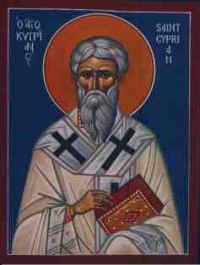
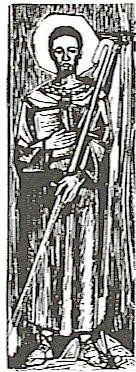

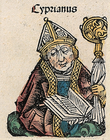





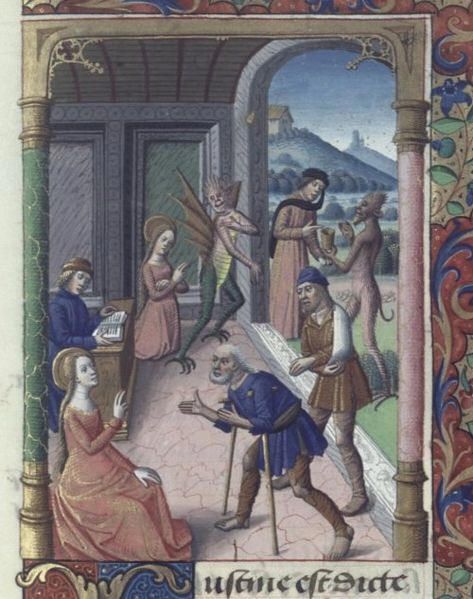
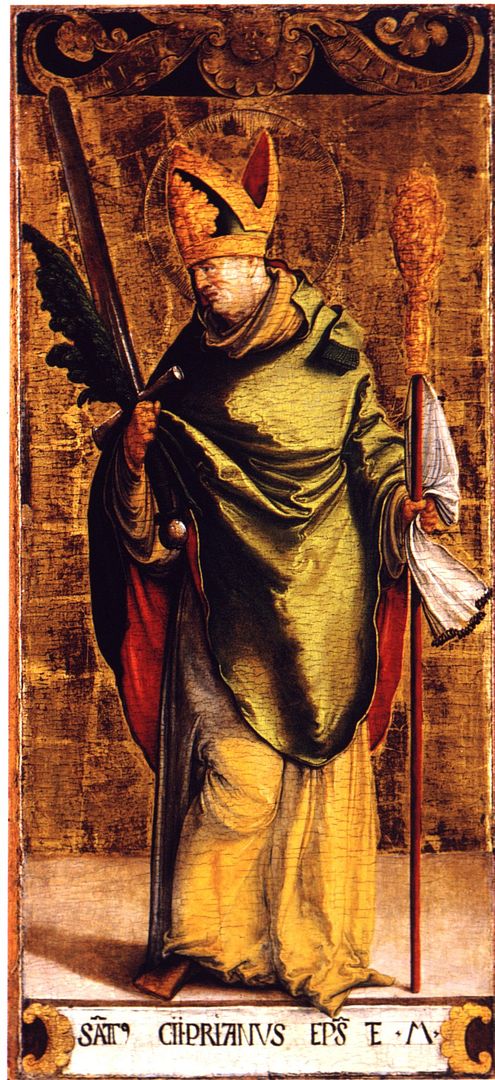
0 comments:
Post a Comment
Thanks for leaving a comment. If you wish to submit a prayer request, however, please do so above, using the "Contact" tab.